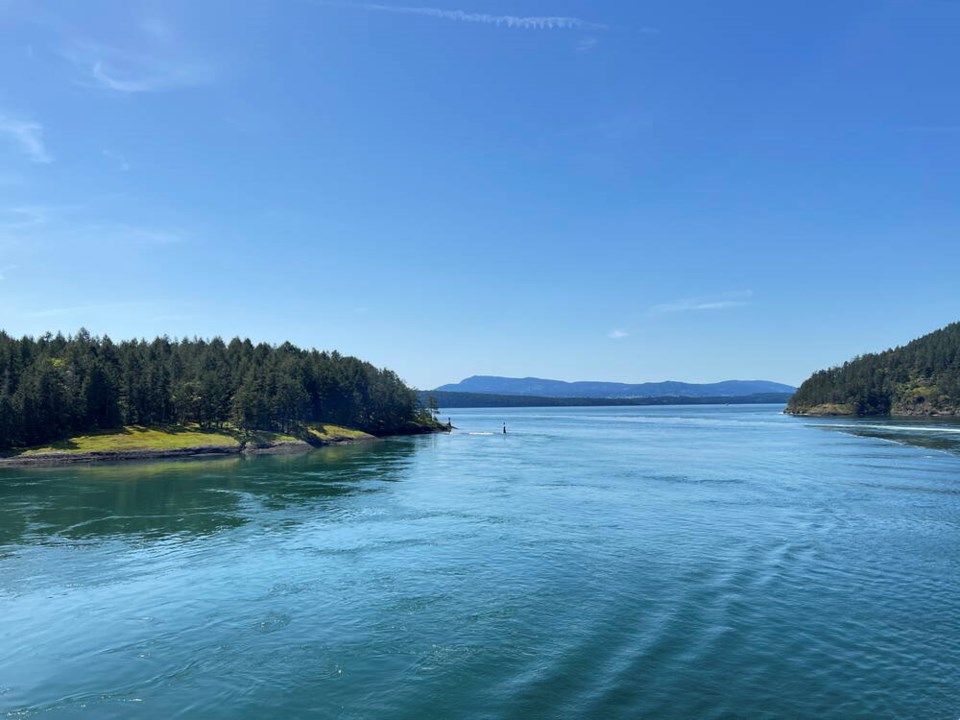The residents of British Columbia should be outraged. In its blind rush to implement its housing agenda, the provincial government has abandoned its commitment to conservation on the Gulf Islands.
In 1974, in the wake of a massive 1,200-lot subdivision on Pender Island, the Gulf Islands were granted special protection under the Islands Trust Act. The Islands Trust government was formed with a mandate to “preserve and protect the Trust Area and its unique amenities and environment for the benefit of residents of the Trust Area and of British Columbia.”
The mandate is pretty clear. But that hasn’t prevented those who oppose the restrictions of the Act from using all kinds of specious arguments to allow for more development. “Unique,” they say, can apply to anything, while “environment” can be either natural or man-made.
In 2021, Trust Council, which consists of 26 trustees from throughout the Trust Area, voted against prioritizing environmental protection in the Policy Statement, choosing instead to broaden interpretation of the mandate to include “protection of healthy and inclusive communities including, but not limited to, housing and transportation.”
By prioritizing both the natural environment and the forces that destroy it, the resolution effectively neutralized the Islands Trust Act. And it wasn’t even necessary, as the Local Government Act already covers housing needs in every Official Community Plan.
Of course the Islands Trust has no legal authority to nullify provincial legislation. But what if the provincial government doesn’t give a damn?
After the landmark resolution, Trust Council hired a consultant to review governance of the Trust Area. The final report identified major problems, such as: “lack of agreement among Trustees as to what the Object means”; trustees “loyal to only their own constituency“; “no comprehensive analysis of the Trust Area’s capacity to accommodate more growth and development”; and no one on Trust Council “to represent B.C.-wide interests.”
And then the most disturbing part: “The absence of any instructions to the Trust by the B.C. government on this subject, coupled with government officials’ decision not to participate in this review, may suggest the Ministry of Municipal Affairs has no appetite to take on questions regarding the Islands Trust mandate and its future.”
In response, Trust Council elected a Governance Committee to implement the report’s recommendations. But hopes for meaningful action were dashed when it became clear most members of the committee had actually voted against having the review.
Additionally, a newly elected Salt Spring trustee, a logger who ran on a “Stop the Islands Trust” platform, is now vice-chair of the committee.
Many island residents have written to the minister responsible to plead for provincial intervention, but to no avail. Ministry spokespeople glibly cite the Governance Review — the same one the government refused to participate in — and suggest the Governance Committee will sort things out.
The implications on the ground are devastating. Every new proposal, no matter how reckless, is justified in the name of housing. Watersheds, community forests, areas of water scarcity, and fragile ecosystems are all up for grabs as the “healthy communities” mantra drowns out voices of dissent.
On Salt Spring, a proposed bylaw seeks to create thousands of new densities across the island, even though trustees acknowledge it will produce very few year-round rentals.
Concerns about the long-term effects on rural character, infrastructure, water supplies and the environment are dismissed as fear mongering. And in true Orwellian style, everything is dubbed “sustainable.”
Missing is a detailed market analysis like that by UBC Professor Patrick Condon who has concluded that simply increasing densities does not solve housing problems: “But unfortunately, in all the cases I’ve examined throughout North America, what happens when you do a rezoning is you let the hungry dogs of land price speculation and inflation loose across the landscape with the intention of enhancing affordability.“
Housing solutions are possible within the framework of the Islands Trust, but they have been sidelined as trustees, housing advocates and developers spin the false narrative that the Trust has a magic housing wand, and only massive rezoning can save the day.
The unspoken agenda clearly goes beyond housing to deregulation and economic development.
It wasn’t supposed to be like this. When the Islands Trust was first established by Dave Barrett’s NDP government, the province had majority representation on every Local Trust Committee to ensure land-use decisions did not violate long-term conservation objectives.
All that changed in 1977 when the “free enterprise” Social Credit government restructured the Trust to give more power to local politicians. The new system of checks and balances is now proving utterly ineffective.
Anyone concerned about the fate of the beautiful Gulf Islands should write to the municipal affairs minister to ask that the original system of governance be reinstated. Local politicians simply cannot be trusted with the long-term stewardship of a provincial treasure.
>>> To comment on this article, write a letter to the editor: [email protected]



